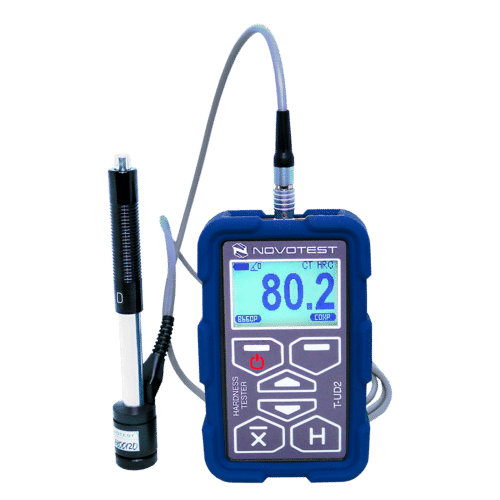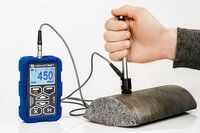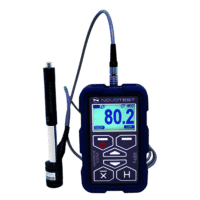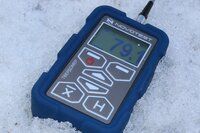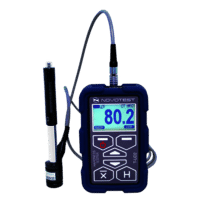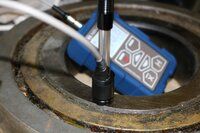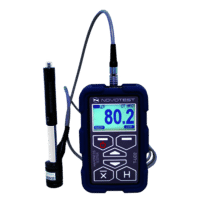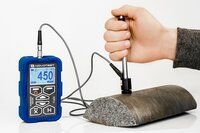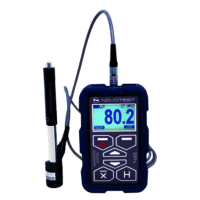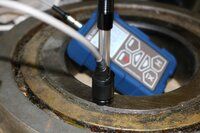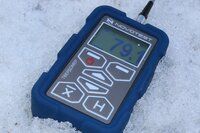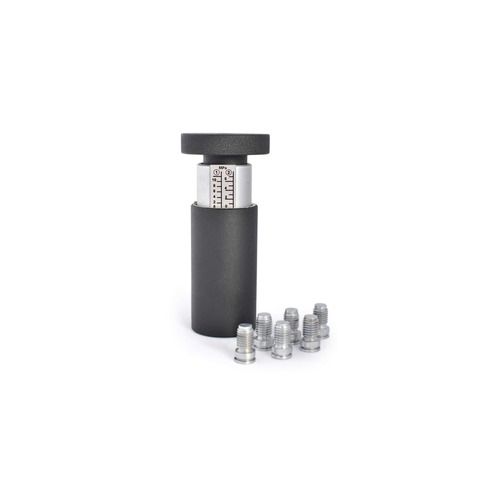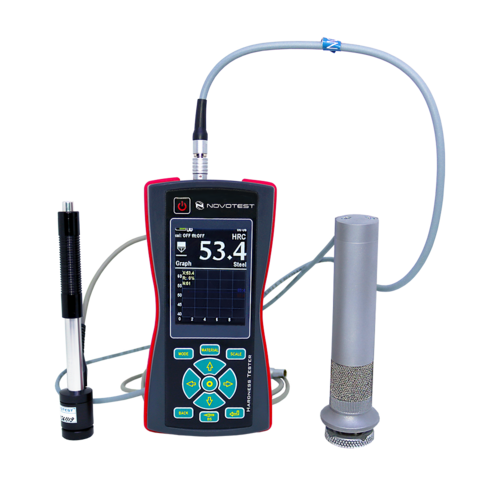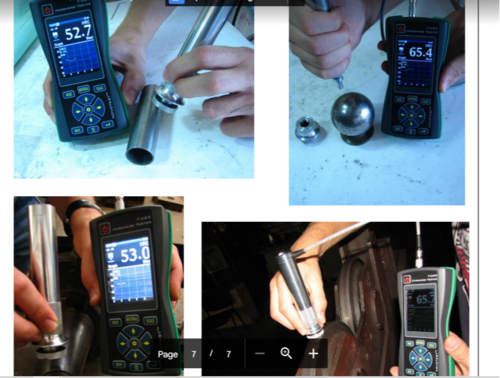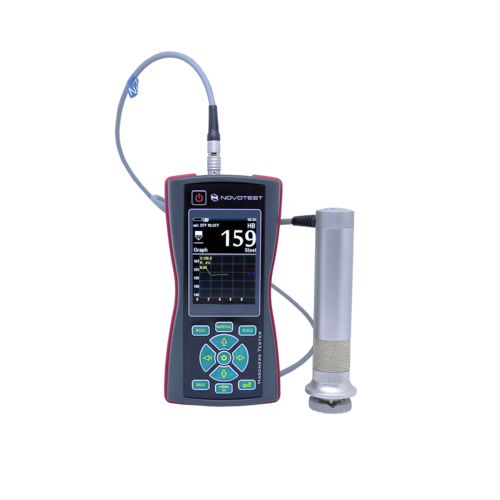Leeb Hardness Tester T-D2
200000 INR/Piece
Product Details:
- Specimen Size Minimum 5 mm thickness
- Equipment Type Portable Hardness Tester
- Power Supply 2pcs AA batteries
- Temperature -10C ~ 50C
- Resolution 1 HL
- Test Range HL 170-960
- Power 2pcs AA batteries
- Click to View more
X
Leeb Hardness Tester T-D2 Price And Quantity
- 1 Piece
- 200000 INR/Piece
Leeb Hardness Tester T-D2 Product Specifications
- -10C ~ 50C
- 12 mm
- 2pcs AA batteries
- Portable Hardness Tester
- Minimum 5 mm thickness
- 122*65*23
- 23 mm
- 1 at a time
- Standard impact speed approx. 5m/s
- Leeb D (HL scale)
- Data storage: 500 groups
- Single test per activation
- Handheld
- 2pcs AA batteries
- HL 170-960
- HL 170-960, HRC 17.9-68.5, HB 19-651, HV 80-976, HRB 13.5-101.7, HS 32.5-99.5, etc.
- 1 HL
- Industrial hardness testing
- 4 HL (0.3% @ HL800)
- OLED display
- Manual
- Metal hardness evaluation
- 90%
- Compact, low power consumption, auto power off, multi-scale display
- Manual
- Hardness tester
- USB
- 3V (2x AA batteries)
- Instantaneous (<1s)
- 120g (excluding batteries)
Leeb Hardness Tester T-D2 Trade Information
- Yes
Product Description
The Leeb Hardness Tester NOVOTEST T-D2 correspond to to ASTM A956 is the most popular metal hardness testing method in the world, because of very easy to use and does not require special skills from the operator. The probe is mounted on the sample, and by pressing the release button, measurement is performed, and the hardness value is displayed on the devices screen. The method works well with low alloy steels, stainless steels, as well as non-ferrous metals.
It is usually used for bulk products, without thorough surface preparation and is less sensitive to inhomogeneous or coarse-grained materials.
Comprehensive Hardness Testing
The Leeb Hardness Tester T-D2 enables users to measure hardness on a diverse range of metals, including alloy tool steel, stainless steel, gray cast iron, spheroidal iron, and more. Its broad measuring scopecovering HL, HRC, HB, HV, HRB, and HS scalesmakes it a versatile tool for industrial applications. With a minimum specimen thickness requirement of 5 mm, its ideal for most metal evaluation scenarios.
Advanced Data Management and Output
Offering storage for up to 500 groups of results and a USB interface for easy PC connectivity, the T-D2 streamlines data handling and analysis. Users can quickly review stored readings or transfer comprehensive records for digital archiving. The devices memory function, instant response time, and adjustable display settings further enhance its efficiency and usability.
Durable, Portable, and Energy Efficient
Designed using sturdy stainless steel and ABS plastic, the T-D2 weighs only 120 grams and is powered by two AA batteries, allowing approximately 150 hours of operation without backlight. Its compact body and auto power-off function ensure convenient usage and transportation, perfect for both in-house laboratories and field work.
FAQs of Leeb Hardness Tester T-D2:
Q: How do I operate the Leeb Hardness Tester T-D2 for a hardness measurement?
A: To use the T-D2, place the impact device on the metal specimen, ensuring a minimum thickness of 5 mm. Set the desired scale, activate the device manually, and the result will display instantly on the OLED screen. The process is straightforward and does not require complex setup.Q: What materials and hardness scales can the T-D2 test?
A: The T-D2 is capable of testing a wide array of materials including steel, cast steel, alloy tool steel, stainless steel, gray and spheroidal iron, cast aluminum alloys, brass, bronze, and pure copper. It provides hardness readings in HL, HRC, HB, HV, HRB, and HS scales.Q: When should I recalibrate the device, and how is it calibrated?
A: The T-D2 comes factory calibrated for high accuracy. For most standard uses, recalibration isnt needed; however, if you notice inconsistencies in results or after extensive use, professional factory recalibration is recommended to maintain accuracy.Q: Where can I use the T-D2 hardness tester?
A: You can use the T-D2 in industrial environments, laboratories, manufacturing workshops, and on-site for inspection or quality control. It operates reliably in temperatures from -10C to 50C and humidity up to 90%, including challenging industrial settings.Q: What are the benefits of using the T-D2 for metal hardness testing?
A: The T-D2 offers rapid, accurate results with minimal preparation, stores up to 500 results for traceability, and enables easy data transfer via USB. Its portability, robust construction, and low power consumption make it suitable for routine inspections and on-the-move testing.Q: How does the memory and data output function work on this tester?
A: The device can store up to 500 sets of test data with timestamps. Users can retrieve, review, and export these results using the USB interface, assisting in quality documentation and batch inspections.Q: Is the T-D2 suitable for testing small or thin specimens?
A: The T-D2 requires specimens to be at least 5 mm thick for accurate measurement, ensuring reliable results even on relatively thin components as long as the minimum size is met.Tell us about your requirement

Price:
Quantity
Select Unit
- 50
- 100
- 200
- 250
- 500
- 1000+
Additional detail
Mobile number
Email
 English
English Spanish
Spanish French
French German
German Italian
Italian Chinese (Simplified)
Chinese (Simplified) Japanese
Japanese Korean
Korean Arabic
Arabic Portuguese
Portuguese
